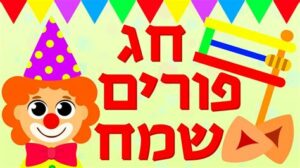
Shalom!
One of the mysterious yet central words in Hebrew slang is “khan-tah-reesh” חַנְטָרִיש (useless, worthless person). חַנְטָרִיש is a Persian expression. In modern Persian, which originates from the early days of Islam, the meaning of the word ‘rish’ is beard, and the verb ‘chandan’ means to laugh. ‘Rishchand’ in Persian means flattery, false compliments, deceit, foolishness. ‘Rishchandi’ is a tendency towards frivolity, and this expression is attributed to someone who does something unsuitable for his beard, as beard is considered a sign of maturity and seriousness. Hebrew adopted the expression as ‘Chande-resh’, meaning laughed at-beard, someone whose beard is being mocked or someone who makes fun of his beard.
Example: This singer is just useless – he has no clue about music.
הַזַּמָּר הַזֶּה סְתָם חַנְטָרִישׁ – אֵין לוֹ מֻשָּׂג בְּמוּזִיקָה.
Much has been written about the word “Balagan (bah-lah-gahn)” בָּלָגָן (mess, disorder, confusion). It came to Russian from Persian, where its meaning is “attic.” In Persian, ‘bahlah’ means ‘up,’ and ‘khneh’ means ‘house.’ In Russian, the word was used as “balagan בָּאלָאגָן” to mean a high stage, which was used for performances in a wild style, and through Yiddish mediation, it passed into Hebrew slang with the meaning of chaos.
Example: Do not make a mess. The guests are about to arrive any moment.
אַל תַּעֲשֶׂה בָּלָגָן. הָאוֹרְחִים עוֹמְדִים לְהַגִּיעַ כָּל רֶגַע.
The word “Pajama” פִּיגָ’מָה pee-jah-mah is less familiar. Its origin is Persian, but it has become an international word and has also found itself in the Israeli slang. In Persian, it is composed of the word ‘pahy’, meaning foot, and ‘jahmah’ or ‘jahmah’, meaning garment, hence it refers to trousers worn on the legs, meaning pants. In India, pajama refers to any pair of trousers. Another explanation is that the British wore tailored clothes during the day and pajamas at night, hence the word’s meaning became a nightwear.
For the readers’ information, “Ash-ka-rah, אַשְׁכָּרָה” (slang: really! truly! actually, indeed) which came to us from Arabic, is actually a word in modern Persian. Its meaning: obvious.
Example: She’s truly a super singer
הִיא אַשְׁכָּרָה זַמֶּרֶת עַל.

The Bible and the Talmud תַּלְמוּד (oral law) are replete with words from ancient Persian. The leading and most common among them is the word ‘dat’ דָּת (daht) (religion, faith; biblical: law, justice) In ancient Persian, ‘dahta’ means law, and literally “given,” meaning what is given by the king or God is law.
Example: There are many religions in the world.
יֵשׁ הַרְבֵּה דָּתוֹת בָּעוֹלָם.
The word “proverb, saying, idiom” פִּתְגָּם peet-gahm, also originates from ancient Persian. “Pati gahmah” is literally: “to go towards,” and its meaning in Persian is message, and in the Book of Esther a command or decree. Later on, “proverb” expanded to mean a sentence expressing a wise idea passed from generation to generation.
Example:
In the proverb ‘Better one bird in hand than two birds on the tree,’ there is a lot of knowledge resulting from actual experience (lit: life wisdom).
בַּפִּתְגָּם ‘מוּטָב צִפּוֹר אַחַת בַּיָּד מִשְּׁתֵּי צִפּוֹרִים עַל הָעֵץ’ יֵשׁ הַרְבֵּה חָכְמַת (חוֹכְמַת) חַיִּים.
Wishing you a Happy Purim.
Ruti Yudovich
https://www.amazon.com/s/ref=nb_sb_noss_2?url=search-alias%3Daps&field-keywords=RUTI+YUDOVICH
http://www.Speakhebrewforreal.com
https://www.facebook.com/speakhebrewforreal/
